- Home
- Mark Frost
Game Six Page 2
Game Six Read online
Page 2
Okay, chump, dig in all you like, that plate belongs to me. You like that? You see that one? How about this? Okay, sit down. Bye-bye. Next victim.
Luis had from almost his first game known he belonged on a pitching mound. Curiously calm and in command, he just didn’t experience the position’s crushing pressures as a stress, but seemed to welcome them as a form of pleasure. Genetics? Yes, no doubt; he was his father’s son, and already had the presence, the cojones, of a matador, but Tiant Senior remained a lanky rapier of a man, whereas there was more than a little of the bull in Luis: solid legs, thick core, barrel chest, and burly shoulders.
And a few days later Bobby Avila came to call at their house to tell them of the offer from the general manager of the Mexico City Tigers:
One hundred and fifty dollars a month to start, but the American clubs keep their eyes on the Mexican League now; someone’s going to bring him over into their system if all goes well, I’ll make sure of that.
Luis watched his father anxiously—$150!—but didn’t speak a word. He had always been a dutiful son, secure in his parents’ love, always respectful of their wishes. He saw only sorrow in his father’s big, expressive features as he heard the news; he could never hide his feelings. He didn’t want his boy to go.
But he nodded yes.
ONE
Now we’re back in the lion’s den.
If they beat us here, they deserve it.
CARL YASTRZEMSKI
If a man put a gun to my head and said
I’m going to pull the trigger if you lose this game,
I’d want Luis Tiant to pitch that game.
RED SOX MANAGER DARRELL JOHNSON
THE SUN ROSE ON BOSTON, MASSACHUSETTS, AT 7:03 IN THE morning on Tuesday, October 21,1975. This, in itself, was news. Local meteorologists, who had been under siege for the last four days, hastily issued dispatches of an optimistic forecast: partly sunny, high near seventy degrees, 10–15 mph winds from the west to southwest. Clearing throughout the day and cooler, with temperatures dropping into the high fifties by 8:30 P.M., the moment on the mind of every resident in the region, native or itinerant, as they stirred that morning.
Game time.
BASEBALL’S FIFTH COMMISSIONER, Bowie Kuhn, woke shortly after six in his presidential suite at the Ritz-Carlton, went straight to the window, and saw the early rays of light filtering across the Boston Common. He had held his job for nearly seven years now, presiding over one of the rockiest periods in the game’s history, beset by labor unrest and falling attendance. But to date this tense, competitive World Series had shown signs of reviving interest in the game, until the New England weather intervened. The sturdy lawyer’s Oxfords that Kuhn had worn the day before to walk the soggy field, before postponing the game at yet another elaborately staged press conference, still sat drying by the fireplace. When the rains first hit, Kuhn had moved Game Six of the World Series, originally scheduled for Saturday afternoon, to Sunday afternoon, and then pushed it back again, as the storm lingering over Boston persisted, to Monday night. Now, at last, after a third day’s delay, sunshine on Tuesday morning.
The forty-eight-year-old Kuhn rang for coffee, sat down at his desk, and paged through his phone book. Even before he notified Red Sox owner Tom Yawkey, in his own suite down the hall at the Ritz, his first call would be to network executive Chet Simmons. The commissioner worked for baseball’s twenty-four wealthy owners, but during World Series Week NBC paid the bills.
Chet, I am cautiously optimistic that we are back in business.
AT THE STATLER HILTON, half a mile closer to Fenway Park, Cincinnati Reds manager Sparky Anderson woke at first light—no alarm clock necessary for Sparky—and crept to the window. One look outside and the butterflies in his guts cranked their engines; his stomach was so jumpy he could have juggled three eggs on it. His nimble, restless mind leapt to the morning’s systematic checklist as he popped his first stick of gum and headed for the shower. Let’s get it on.
Two floors below, the Reds’ All-Star catcher Johnny Lee Bench, still in the grip of a lingering, miserable virus, registered the sky outside, his weather eye delivering an instant calculation—ball game today—then rolled over and went back to sleep.
IN A SUITE at the Parker House, David Israel, a twenty-four-year-old sports reporter for the afternoon Washington Star, had stayed up long after midnight, dictating his game-day column to an inexperienced receptionist at the newspaper’s switchboard. Only one year out of Northwestern’s prestigious journalism school, Israel had brashly conned his way into his deluxe digs for the whole weekend when the rains washed out Saturday’s Game Six. As the deluge lingered, his suite had become a crash pad for a number of other reporters, who had either checked out of their own rooms by the time the game was called or missed the day’s last shuttle back to New York. When he woke up that morning, two of Israel’s journalistic idols were sacked out in his living room: NBC’s Dick Schaap and the New York Times baseball scholar George Vecsey. Schaap cracked open an eye as Israel called down for coffee; ever solicitous of his elders, Israel apologized profusely for waking Schaap up the night before during his lengthy, frustrating phone call to the newspaper. His regular dictationist—a sharp young cookie named Maureen Dowd—had been unavailable, and it seemed the woman he ended up with had never seen a baseball game before.
“I knew you were in trouble when you had to spell ‘World Series,’” said Schaap.
IN SUBURBAN MILTON, ten miles to the south, Luis Tiant was the first one out of bed in his full and bustling household, padding to the kitchen before the kids woke up for school. Still trying to shake off his own nasty cold, he drank his first coffee and looked out at bleak autumn sunlight brushing the lush green wood in his backyard, just off the eleventh fairway of Wollaston Golf Club. His back and shoulder still felt tender from his last outing, a prodigious 163-pitch complete-game victory in Game Four at Cincinnati the previous Wednesday.
Okay. So we play. Doc says my back’s okay, but this is late October in Boston and it’s going to be fucking cold tonight.
He downed one of Doc Shapiro’s miracle anti-inflammatories. Morning prayers to follow.
AT HIS FURNISHED APARTMENT a few miles to the east of Milton, in Quincy, Red Sox center fielder Fred Michael Lynn had stayed up well past midnight with his wife and some of his young teammates, watching O. J. Simpson’s Buffalo Bills lose their first game of the year to the New York Giants on Monday Night Football. Like the Juice, Fred had been recruited to play football at USC, returning punts and backing up future Hall of Fame wide receiver Lynn Swann, before deciding to focus exclusively during his last two years on baseball for Rod Dedeaux. Hearing this unwelcome news, USC’s imperious football coach John McKay had told Lynn he was making the biggest mistake of his life, and didn’t speak to him again for twenty years. After starring on three consecutive NCAA championship teams for Coach Dedeaux and now, less than a year later, putting together what was beyond dispute the most sensational rookie season of any player in the history of pro baseball, no one else ever second-guessed Fred Lynn’s decision again. Bigger postseason awards were in the offing, but Lynn was about to learn that morning he’d been the leading vote getter on the Associated Press Major-League All-Star team for 1975.
They hadn’t played ball now in five days, since flying back to Boston from Cincinnati early Friday morning, the Red Sox’s longest break between games since spring training began back in March. From the weather reports on the radio Lynn figured they’d finally get in Game Six that night, but he pondered the curious lack of excitement he felt about the prospect.
Like we’re going to be playing any other regular season game.
He wasn’t the only one who felt it that morning; players, coaches, journalists, and fans all over Boston agreed that this delay—tied now for the second longest in World Series history—had really taken the edge off the game.
Well, that’ll probably change when we get to the park.
AT THE BOSTON GLOBE
on Morrissey Boulevard, the sports department staff slowly rolled in around nine, more than a few of them the worse for wear. Editor Tom Winship called their morning meeting to order and began to divvy up the day’s assignments on Game Six story lines. They had written themselves cross-eyed trying to wring angles and fill columns out of the three-day delay—a few had finally thrown up their hands and written about how little they had to write about—and with no small relief they welcomed the chance to process and package the meat of a real game again. Bob Ryan, Bud Collins, Cliff Keane, Will McDonough, Leigh Montville, Ray Fitzgerald, Peter Gammons—old-school newspapermen, self-styled sentimental cynics covering the most literate sports-mad town since Athens. While the Celtics and Bruins routinely won championships and their fans’ dogged admiration, the Red Sox remained the region’s more inconstant and elusive muse; a beautiful, terrible object of obsession, blind faith, and reliably unhappy endings.
Globe staffers would all pursue variations on the same themes that day: After a valiant, uplifting pennant-winning season and their first postseason series victory in fifty-seven years—a commanding three-game sweep over Oakland in the American League Championship—Boston’s beloved, star-crossed Sox found themselves down three games to two in the World Series against Cincinnati’s indomitable Big Red Machine. Here we go again: The bastards had raised their hopes all summer then delivered them once again to the brink of heartbreak, and for the past few days a damned nor’easter wouldn’t even let them get it over with. Would the old funereal dirge play again at Fenway tonight, or could this unlikeliest collection of local heroes mount one last stand and extend the Series to a seventh and deciding game?
Lesley Visser, twenty-two, Quincy native, recent graduate of Boston College, former cheerleader—and every man on staff’s favorite cub reporter—hovered on the margins and kept quiet whenever this formidable group gathered. Sportswriting had for a century been exclusively a male fraternity; Visser wasn’t just a pioneer, she was nearly Jackie Robinson. Following the unlikely dream she’d had since the age of ten had brought her inside the doors of her favorite newspaper, but just by inches; only patience, sustained excellence, and quiet persistence would take her any further. When the meeting broke at ten, once again without a Series-related assignment sent her way, and the tribe’s elders dispersed to begin tapping sources, Lesley walked back to patrol her bottom-rung beat, checking the schedule of high school football games she’d be covering that weekend.
Disappointment must have shown on her face—she hadn’t even been able to finagle a ticket to any of the three Series games at Fenway yet—because Peter Gammons suddenly appeared over her desk, holding up a small green tag in his hand, saying he had called in a favor. She didn’t initially realize what she was looking at, and then noticed the word “PRESS.” And someone had scrawled across it with a felt-tip pen: “Game Six.”
A press pass.
Peter got a hug. The pass went into Lesley’s purse.
ALONE ON THE DIAMOND at Fenway early that morning, Joe Mooney stood out near second base, waiting for the helicopters. If they’d held a contest for “grumpiest and most exhausted man in New England,” Mooney would’ve won by acclamation. The park’s head groundskeeper had manned his post for four straight days and nights like an army surgeon at Gettysburg. He had pulled and replaced the tarps over the field for the “Grand Pooh-bah” Kuhn a dozen times and dumped five tons of a moisture-absorbent substance called “Turface” onto the dirt and grass. The infield, against all odds, remained playable, while the rain had slowed to a drizzle that morning and finally stopped midday. Then Kuhn goes ahead at his Monday afternoon press conference yesterday and dumps the third day’s delay on Joe Mooney.
“Although the weather is improving, the groundskeeper here doesn’t feel there’s any way the field can be ready for play by tonight.”
The dough they pay that big stiff and all he does is parade around sticking his fancy Florsheims in puddles, sniffing the air like Punxsutawney Phil with eight hundred reporters and the players hanging on every word, and then he says the field’s not playable. And besides, that wasn’t what Mooney had told him when he’d first asked him about it at noon. He’d said: “Give me eight hours and we’ll have the field ready.”
What His Excellency didn’t say at his press conference was he didn’t want his precious Game Six going up against Monday Night Football.
This time of year moisture always seeped up in the outfield at night. The park was built on the fens—That’s a fancy word for swamp, okay?—that chunk of the Old Back Bay they dredged out and land-filled when the city grew west a hundred years ago. Add three inches of rain on top of that and you’re always gonna get water backing up out there, but it was nothing Joe Mooney and his crew couldn’t handle.
So, whatever, it’s done with, we’ll play tonight.
Mooney could see his shadow in the dirt; that was a good sign. He had kept the lights on all night, calling on every little bit of heat to help dry out the turf. He heard the dull thwack of the rotor blades as the choppers reached earshot. Mooney thumbed his walkie-talkie to life and guided them gingerly in over the light stands fanning the rim of Fenway Park, until they leveled at twenty feet above left and right field, jacked up the rpm’s, and went to work fanning the grass.
Maybe the commissioner would like us to send one over to his hotel after and dry his hair for him.
WALKING BRISKLY down Boylston Street on his way to Fenway Park, Chet Simmons decided he had a good kind of problem. Although Bowie Kuhn insisted they stage another walk-through on the field before making it official—as far as the media was concerned—the commissioner’s phone call had woken him with the welcome news that Game Six was a “go” for tonight. As the executive in charge of NBC’s exclusive radio and television coverage of the World Series, Simmons immediately pushed the button kick-starting the network’s national machinery to prepare for the broadcast, while his bottom-line mind quickly sorted through a calculus of pluses and minuses. Although many of his corporate colleagues had yesterday relished the machismo prospect of the Series going head-to-head against ABC’s Monday Night Football, Simmons knew that at best the likely outcome would have been a bloody draw—with CBS and its slate of established middle-brow sitcoms, anchored by All in the Family, being the main beneficiary. Now that they had Tuesday night to themselves, this third and last rain delay looked like a blessing in disguise.
But NBC’s field accountant in Boston had called Chet soon after Kuhn’s report with news that the rain delay was going to cost the network $150,000 in additional hotel and living expenses. And what was worse, the extended days of work for his technicians and engineers, who had remained on standby throughout the lost soggy weekend, meant they were now unavoidably in “golden time” for the one or two Series games that remained—triple the standard union wage.
Simmons then received a more welcome call from Carl Lindeman, president of NBC Sports, telling him that this World Series had averaged a robust 43 percent share of the viewing audience during its first five games, winning six out of seven nights and the week for NBC and lifting them into a narrow lead for the young season over CBS. The three midweek night games had performed surprisingly well, climaxing in a 48 percent share on Thursday’s Game Five in Cincinnati. Night games, introduced into the World Series only in 1971 and still a subject of bitter debate for baseball purists, were clearly the wave of the future. The math was simple: A sixty-second spot during any prime time Series game cost advertisers $100,000. Only after any World Series moved beyond the four games of a dreaded sweep were the network’s baseline investments covered, and every nickel banked after that was pure profit. Since NBC first broadcast it in 1947, the World Series had perennially retained its title as the biggest ratings event of the television year. This year’s balance sheet looked rosy for NBC, and that was very good news for Chet Simmons.
But all was far from well in baseball. The previous three World Series had been won by Charles Finley’s colorful, small
-market Oakland Athletics. Great for Charles Finley, one of the game’s last and most flamboyant showmen/owners, but not necessarily good for the sport; since the late sixties, for the first time in decades, both live attendance and television ratings had begun to deteriorate. Not coincidentally, the game’s bellwether big-city franchise New York Yankees—winners of nearly half the World Series played in the last fifty years—had suffered through a decade of disappointment and decline. Hard to believe now, in a modern world that daily serves up hundreds of viewing choices—and the complete daily schedule in baseball, if you care to pay for it—but in 1975 the multiple channels offered by cable TV penetrated less than 10 percent of America’s top media markets, so relatively few games outside of local broadcasts were ever seen. The three major networks still held an ironclad monopoly on the nation’s viewing options, and NBC owned the baseball contract, and since the 1950s NBC had determined that during the regular season Americans should consume only one nationally televised game a week.
Trouble of a more ominous nature threatened from the heart of the game itself. Encouraged by the radical social turn much of the country had taken since the late 1960s, baseball players were becoming increasingly vocal about the gross inequity of baseball’s reserve clause, a restrictive, almost medieval legal provision that allowed teams to retain their rights to any player they had under contract for a year after that contract expired. As a result, bargaining power for the player hardly existed; few used agents or lawyers to represent them, which in most cases meant accepting whatever salary their owners saw fit to hand them. These annual “negotiations,” usually conducted face-to-face by the player himself with the team’s legal hatchet man, amounted to little more than ritualized humiliations. Professional baseball players, from the lowliest scrub to those considered national treasures, had all the legal status of indentured servants.

 Rogue
Rogue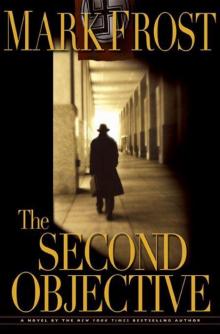 The Second Objective
The Second Objective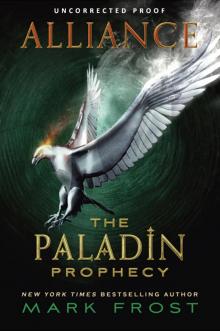 Alliance
Alliance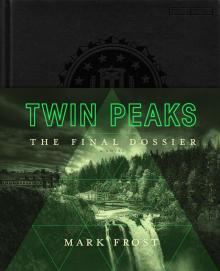 Twin Peaks: The Final Dossier
Twin Peaks: The Final Dossier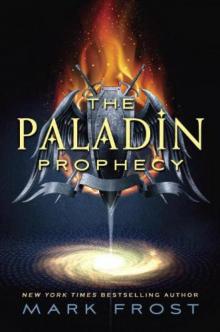 The Paladin Prophecy
The Paladin Prophecy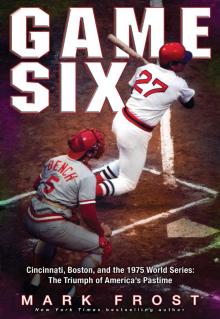 Game Six: Cincinnati, Boston, and the 1975 World Series: The Triumph of America's Pastime
Game Six: Cincinnati, Boston, and the 1975 World Series: The Triumph of America's Pastime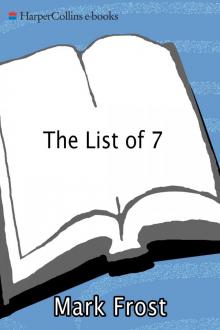 The List of Seven
The List of Seven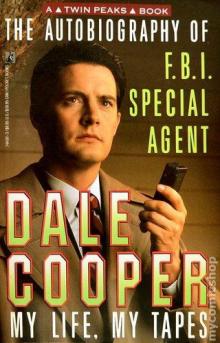 The Autobiography of FBI Special Agent Dale Cooper
The Autobiography of FBI Special Agent Dale Cooper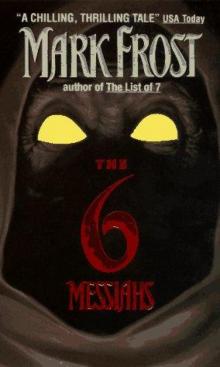 The Six Messiahs
The Six Messiahs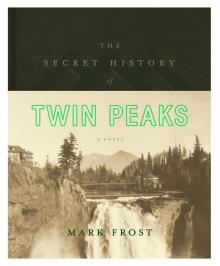 The Secret History of Twin Peaks
The Secret History of Twin Peaks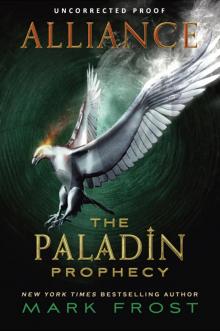 Paladin Prophecy 2: Alliance
Paladin Prophecy 2: Alliance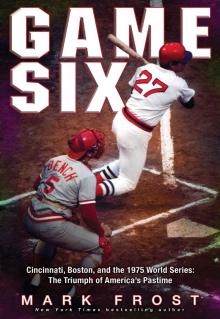 Game Six
Game Six